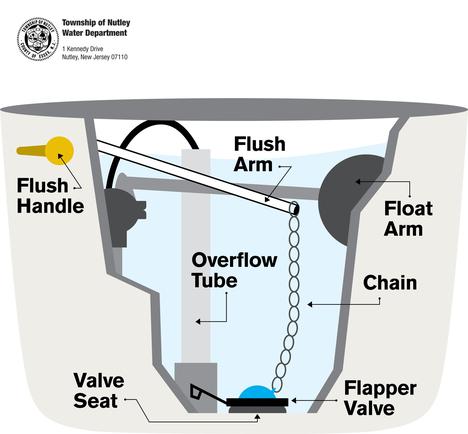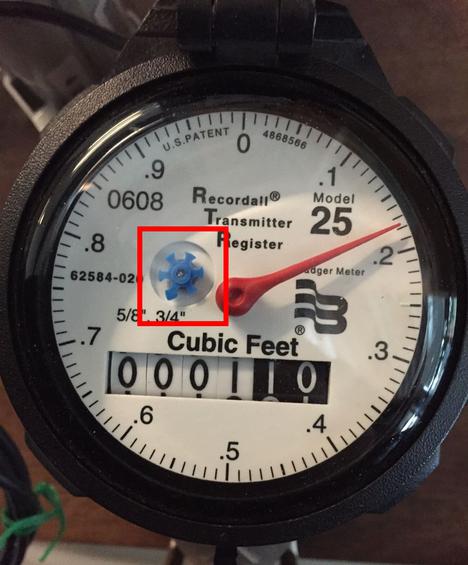Water Billing - High Bill? Check for Leaks
High Bill?
If your bill is higher than expected:
- Check the days of service – is this for a longer billing period than the bills to which you are comparing?
- Check your usage – did your usage increase?
- If so, did you do anything differently during this time period? Were there additional persons staying at the property?
- Did you have a leak?
If your usage has increased, the Nutley Water Department encourages you to review the below information and follow the below step-by-step instructions to check for leaks.
If you have reviewed the below information and still have questions or concerns about your bill, please contact the Water Billing office at (973) 284-4962 or waterbilling@nutleynj.org. Office hours are 8:00am through 4:00pm, Monday through Friday.
free of charge, please contact (973) 284-4984 to schedule an appointment.
What Leaks Waste
High bills usually mean a leak, and potentially hundreds of gallons of water down the drain.
Not only is your water wasted, but it registers through your meter and could cost you as much as several hundred dollars a month.
- Dripping Faucet: Consumes 15 gallons a day, or 60 cubic feet per month
- Running Toilet: May consume up to 12 gallons a minute
- 1/16-Inch Opening: Consumes 943 gallons a day, or 3,773 cubic feet per month
- 1/4-Inch Opening: Consumes 60,900 gallons per day, or 243,600 cubic feet per month
Please note: the excess water use, identification and repair of leaks within your private plumbing system, as well as the associated costs, are the responsibility of the property owner.
Nutley Water Department Step-by-Step Instructions for Checking Water Leaks
If you are unable to find and repair leaks by following the steps below, you may want to contact a plumbing professional.
Step 1: Test your toilet(s).

The most common leak in a household is caused by a faulty toilet(s). There are three ways to check for toilet leaks.
Check the bowl for ripples.
- Flush the toilet and wait five (5) minutes.
- Check the water in the bowl for ripples.
- Perform a dye test.
- Simply put a few drops of food coloring in the tank and check the bowl in one hour.
- Check if colored water is getting into the bowl.
If you see ripples in the bowl or if colored water is getting into the bowl, you likely have an “improper seating leak.”
This problem can be corrected, depending on the cause, by:
- Tightening a loose handle; straightening the control arm if it is rubbing; replacing a sticking rod guide or ball rod; cleaning a corroded valve seat; or replacing a faulty tank ball
- Check the tank.
- Remove the top of the tank.
- Find the overflow tube in the center of the tank.
- Check the water level. It should be about one (1) inch below the top of the overflow.
If the water is above the overflow, you likely have a “continuous overflow leak or
If the toilet(s) does not appear to be leaking, proceed to step 2.
This problem can be corrected, depending on the cause, by:
- Bending the end of the float ball rod down; replacing a float ball which has filled with water; or replacing a faulty or corroded float ball shut-off valve.
Step 2: Observe the Leak Detection dial on the water meter itself.

- Your water meter is most often located in the basement or in a utility room.
- The Blue Dial is the leak indicator
- If it is turning, skip to step 3.
Step 3: Checking for private plumbing leaks
If your Leak Detection dial is turning, the next step is to check for private plumbing leaks.
- Turn off all water-using appliances and fixtures one-by-one checking the test dial as you go. Be sure to include clothes washers, dishwashers, ice makers, humidifiers, boilers, irrigation systems, hose bibs, and showers, as well as all faucets.
- Continue until you have isolated the faulty device(s).
- Make your repairs.
- Check the test dial once more to be sure the problem has been resolved.

